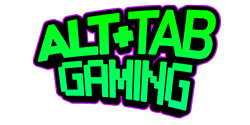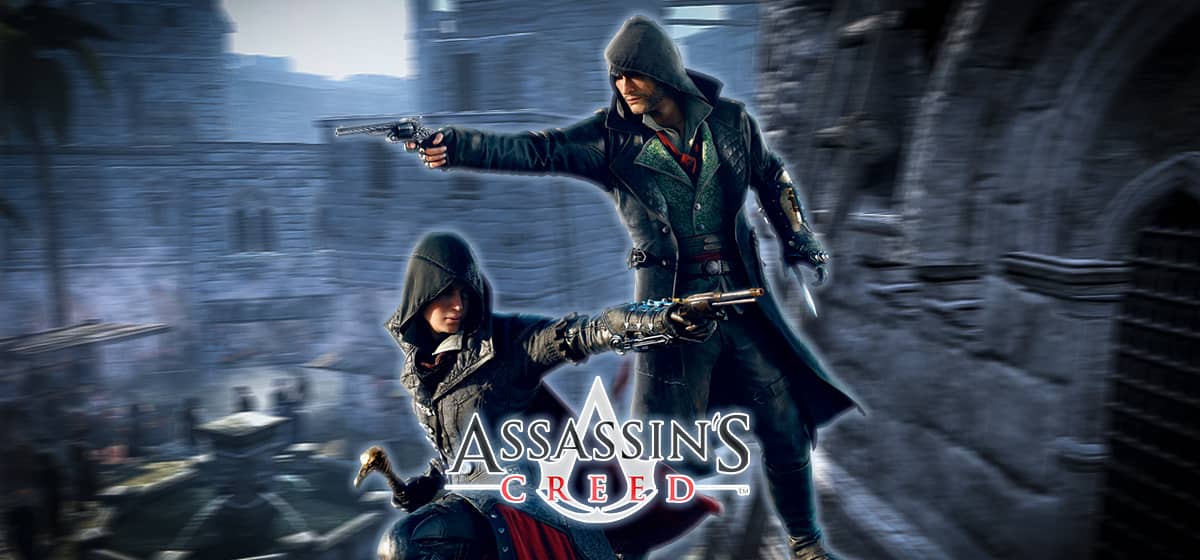Hi, GeekGamer here again! Today we’re going to delve into one of the most popular questions in the gaming world in general: how many Assassin’s Creed games are there? We’ll break down the current number of Assassin’s Creed games and explore what makes each one unique.
Main Games
Assassin’s Creed (2007):
The first installment of the Assassin’s Creed saga introduced innovative gameplay and became hugely popular due to its novel mechanics and thrilling narrative. The game takes us through two timelines. In the past, you play as Altaïr Ibn-La’Ahad, a powerful assassin living during the Third Crusade (1191), who must reclaim his honor by assassinating nine Templars threatening the peace of his land and the world. In the present, you experience the adventures of Desmond Miles, who is forced to relive the memories of his ancestor, Altaïr, through the Animus.
Assassin’s Creed II (2009):
Following the success of the first game, Ubisoft (the developer of Assassin’s Creed) released this sequel, which improved upon and continued many aspects that made the original title famous. In the present, Desmond escapes from Abstergo Industries and joins other assassins to continue exploring in the Animus. In the past, we shift to the Renaissance in Italy, reliving the memories of Ezio Auditore as he explores beautiful cities like Florence, Rome, and Venice, while uncovering the Templars’ plots amidst a backdrop of betrayal and action
Assassin’s Creed: Brotherhood (2010):
This is a direct continuation of Assassin’s Creed II, following Ezio Auditore’s adventures. In the present, Desmond and his team of assassins hide in a modest Italian villa while searching for a valuable artifact. In the past, Ezio heads to Rome to destroy the Borgia family and their evil ties, this time with the help of recruited assassins.
Assassin’s Creed: Revelations (2011):
This game links the stories of Ezio Auditore and Altaïr Ibn-La’Ahad. In the past, you live through the final adventures of an older Ezio in Constantinople, one of the saga’s most beautiful maps. Ezio must find and decipher the hidden knowledge of Altaïr. In the present, Desmond is in a coma, exploring his ancestors’ memories while struggling to keep his mind from collapsing under the pressure.
Assassin’s Creed III (2012):
This game marks a significant shift in the series’ setting and narrative, introducing a new protagonist and moving the action to the American Revolution. In the present, Desmond seeks to end Templar domination and prevent a global catastrophe. In the past, you play as Connor, a young Mohawk with British ancestry (whom I, GeekGamer, consider the saga’s most tragic protagonist). Connor must join the weakened Assassin Brotherhood to protect his people. This game notably improved mechanics, introducing naval combat for the first time. However, it didn’t receive the same acclaim as Ezio’s trilogy.
Assassin’s Creed IV: Black Flag (2013):
Thanks to its focus on piracy and naval exploration, this is considered one of the best games in the series. Subsequent franchise games were influenced by its success, especially regarding the incorporation of sailing and naval combat. In the present, you play as an anonymous employee of Abstergo Entertainment, working on a project to create entertainment products using the memories of Edward Kenway. In the past, you explore the golden age of piracy as Edward Kenway (Connor Kenway’s grandfather), visiting many Caribbean port cities.
Assassin’s Creed: Rogue (2014):
Perhaps the most underrated title in the franchise, often seen as a “side chapter” in the saga. In the past, you control a Templar named Shay Patrick Cormac, who starts as an Assassin but switches sides due to a twist of fate. In the present, you play as an Abstergo Entertainment employee, similar to Black Flag, investigating Shay Patrick Cormac’s memories to gather useful data for the Templars. The plot unfolds during the Seven Years’ War, inviting you to explore regions like colonial North America, the North Atlantic, and the Appalachian Mountains.
Assassin’s Creed: Unity (2014):
The standout feature of this game is its stunning recreation of Paris during the French Revolution, as well as its introduction of a multiplayer cooperative mode to the franchise. However, it became infamous for being filled with bugs and glitches that were never fully resolved. In the present, you play as “Initiate,” an unknown Assassin recruited to relive Arno Dorian’s memories. In the past, you become Arno Dorian, a young Frenchman who becomes an Assassin after his adoptive father is killed. Arno seeks to avenge his family while becoming embroiled in the eternal struggle between Assassins and Templars.
Assassin’s Creed: Syndicate (2015):
Personally, this is the least enjoyable game in the saga, both in terms of story and gameplay. This title takes you to London during the Industrial Revolution, allowing you to control two main characters and focusing on class struggle and the growth of the Assassin Brotherhood. In the present, as in each new game, your role becomes less important to the story. In the past, you control twins Jacob and Evie Frye, Assassins with the sole mission of freeing London from Templar control, led by the ruthless Crawford Starrick.
Assassin’s Creed: Origins (2017):
This game represents a major reboot of the franchise, introducing significant changes to gameplay, narrative, and the structure of the open world. Origins combines history, mythology, and adventure while exploring the origins of the Assassin Brotherhood in Ancient Egypt. In the present, you control perhaps the least beloved character in the saga: Layla Hassan, a former Templar agent turned Assassin. In the past, you play as Bayek of Siwa, a protector of Ancient Egypt, and his wife Aya, during the final period of the Ptolemaic dynasty. Ubisoft introduces RPG mechanics for the first time in this title, which received mixed reviews.
Assassin’s Creed: Odyssey (2018):
Odyssey follows the RPG approach found in Assassin’s Creed: Origins, expanding role-playing mechanics, character customization, and freedom of choice, set in Ancient Greece during the Peloponnesian War. In the present, we continue with the story of the uncharismatic Layla Hassan and her rather dull story, which adds little to the game’s entertainment. In the past, you play as Alexios (or Kassandra, but honestly, Alexios is more fun), the grandchild of none other than Leonidas of Sparta. Throughout the story, you’ll fight against a pre-Templar cult called the Cult of Kosmos. In my opinion, Odyssey is a fantastic game because it introduces a “decision-making” mechanic that immerses you more in the narrative, despite the criticism it received for its microtransactions.
Assassin’s Creed: Valhalla (2020):
The RPG focus of its predecessors, Origins and Odyssey, continues in this game, but it centers on Viking culture and expands the gameplay in a vast open world. Valhalla is set in England and explores the life of Norse warriors during the Viking Age. In the present, we still follow the story of the unpopular Layla Hassan as she tries to save the world. In the past, you become Eivor, a bold and powerful Viking of the 9th century AD (who can also be a female warrior), fighting to settle with your clan in England and encountering the ancient order of Assassins. The mere mention of “Viking” and the game’s incredible open world was a home run for Ubisoft.
Assassin’s Creed: Mirage (2023):
The focus on stealth, parkour, and assassination in this game marks a return to the franchise’s roots, moving away from the more recent RPG style. Mirage is set in Baghdad during the Islamic Golden Age, offering an experience reminiscent of the early games in the series. The game fully immerses you in the life of Basim Ibn Ishaq, a character introduced in Assassin’s Creed: Valhalla, showing his transformation from a common thief to a master assassin in Baghdad. The game brings back the prominence of parkour, stealth, and other mechanics that made Assassin’s Creed famous. The title received mixed reviews, with arguments like “it’s a beautiful trip down memory lane where everything was happier with the saga,” or “the game isn’t as good as it used to be.”
Assassin’s Creed: Shadows (2024):
This title is set to be released in November 2024. However, from trailers and leaks, it’s known that it will be set in 16th-century Japan, at the end of the Sengoku period (not Sudoku, don’t get confused). It’s also known that an African character will be introduced as a co-protagonist.

Secondary Games
- Assassin’s Creed: Altair’s Chronicles (2008): A game released for Nintendo DS, Android, and iOS. It’s a prequel to the first main Assassin’s Creed game.
- Assassin’s Creed Bloodlines (2009): Developed exclusively for PSP, where you play as Altair, set in Cyprus.
- Assassin’s Creed II: Discovery (2009): Released for Nintendo DS and later for iOS. It’s a spin-off of Assassin’s Creed II.
- Assassin’s Creed: Rearmed (2011): Released exclusively for iPhone and iPad. It’s a multiplayer mode that didn’t gain much fame and isn’t essential to the saga.
- Assassin’s Creed Chronicles (2015): A trilogy of side-scrolling action games set in China, India, and Russia, released for various platforms.
- Assassin’s Creed Identity (2016): A role-playing game released exclusively for mobile devices with no significance to the main saga.
- Assassin’s Creed Rebellion (2018): A mobile strategy game set in Spain during the Inquisition.
- Assassin’s Creed: Pirates (2013): A mobile game centered around naval combat.
- Assassin’s Creed: Memories (2014): A card-based game for mobile devices.
- Assassin’s Creed Infinity (TBA): Still in development. This title will be a live-service platform to deliver future Assassin’s Creed content, rather than a single game, but little else is known at this point.
So…How many Assassin’s Creed games are there? There are 14 main Assassin’s Creed games as of 2024, in addition to a plethora of mobile games, spin-offs, and other media entries that further develop the universe. Since the franchise is still one of Ubisoft’s major games, the number will keep rising.
You can now pick the Assassin’s Creed game that most intrigues you to play after learning everything there is to know about it. Which ones are your favorites? Which is your favorite, in your opinion?

